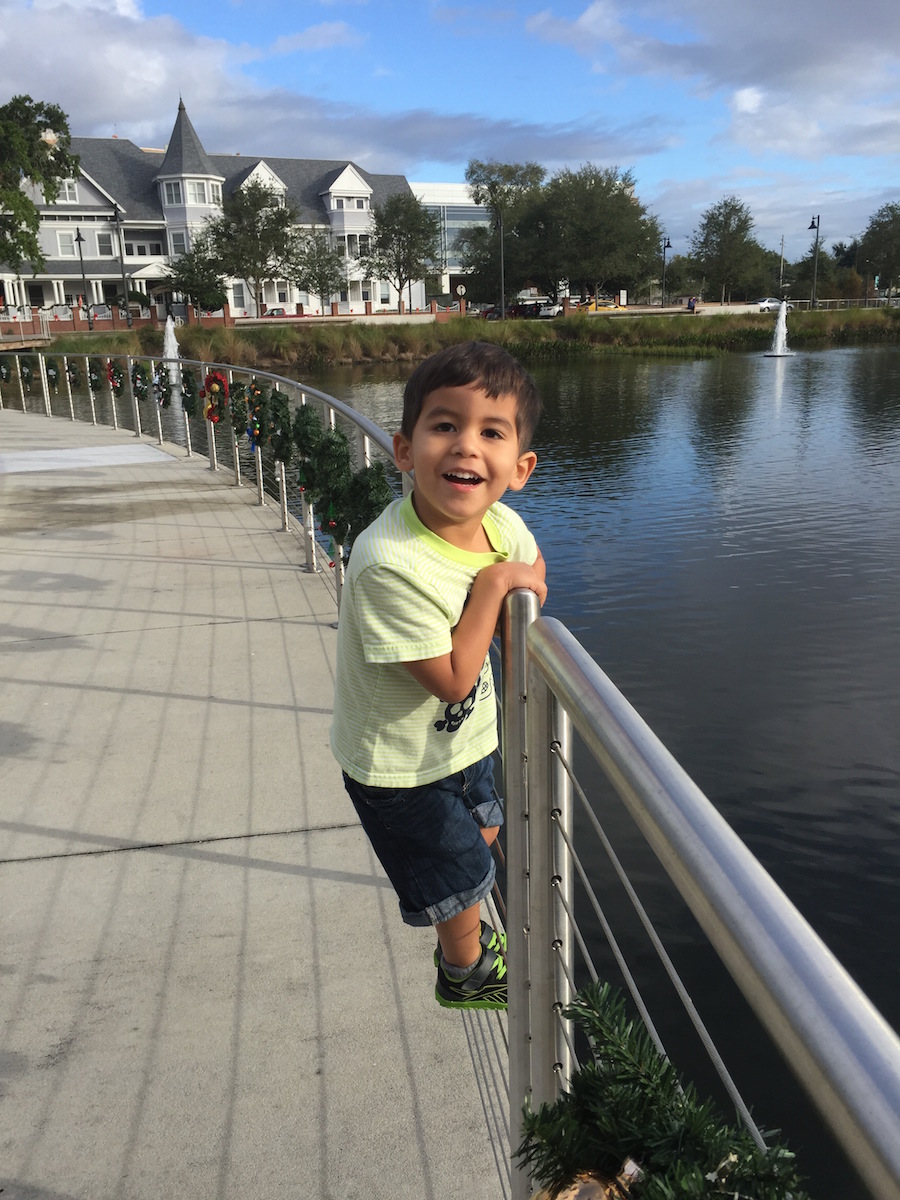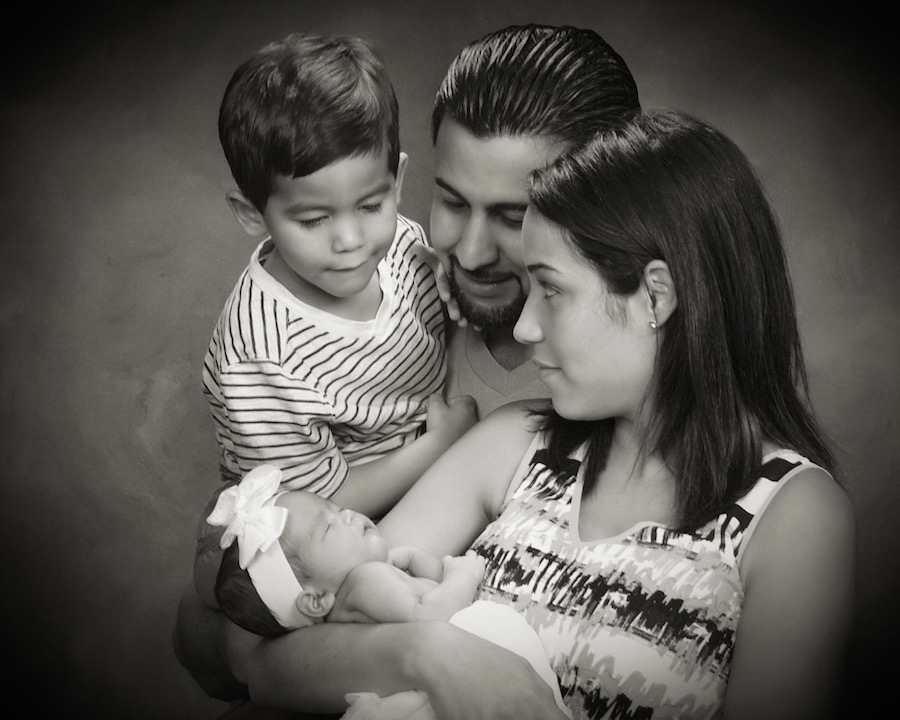When every bite is a fight- Diego’s struggle to overcome feeding difficulties
Diego was born on May 31st, 2012, and his parents, Diana and Freddy, were overjoyed. Diego was a happy, healthy baby, and he entered into the world as part of a family that radiates light and love.
Diego’s parents delighted in each new milestone as he grew. He was breastfed until he was 10 months old, and at four months of age he was given his first solid foods- baby cereal and homemade pureed fruits and vegetables.
It wasn’t until he progressed to thicker, chunkier foods that eating became a problem. When given chunky, solid food to eat, Diego would refuse to chew his food. As his parents would lift the spoon to his mouth, he would adamantly refuse, often resulting in a tantrum. If after much insistence by his parents, he did take some of the food from the spoon, he would simply swallow it whole, unable or unwilling to chew. This frequently caused him to gag or even vomit. He often would simply refuse to eat any solid food that wasn’t soft and easy to swallow.
Over the next year
Over the course of Diego’s first year-and-a-half, Diana and Freddy talked with their pediatrician at each check-up about Diego’s difficulties with food. At first, it seemed Diego just wasn’t ready to eat solid foods yet. Diana and Freddy thought perhaps this was just Diego’s strong personality beginning to develop. After all, Freddy’s parents said that he had behaved the same way as an infant. Since Freddy overcame these issues, the young parents figured Diego, too, would outgrow the problem. After many months of trying to introduce Diego to new foods with no success, though, it was clear the problem wasn’t going away.
At Diego’s 18-month check-up, his pediatrician recommended an evaluation by a pediatric gastroenterologist. Soon after their referral to the Center for Digestive Health and Nutrition at Arnold Palmer Hospital, they met Dr. Devendra Mehta.
And that is when Diego’s difficulties with food began to change.
When he came to see Dr. Mehta for the first time, Diego was still eating only Stage 3 baby foods, soups and softs solids that didn’t require chewing. He had been given a diagnosis of “failure to thrive”- a general medical term to indicate he wasn’t growing properly, but no one knew exactly why. Dr. Mehta set out to figure out why he wasn’t able to eat normally.
First, Diego was prescribed Speech and Occupational Therapy to help develop and strengthen the muscles needed for chewing. After many months of therapy, though, he had made little progress.
Each meal was still a struggle. After an hour of his parents trying to persuade him to eat and the distraction of an iPad, Diego still only consumed a fraction of the food he needed.
Dr. Mehta, along with Diana and Freddy, decided that it was time for Diego to undergo an endoscopy to determine whether there was an underlying physical reason for his troubles. An endoscopy is a procedure that allows the physician to place a flexible tube with a light and a camera down the digestive tract to diagnose problems such as gastrointestinal reflux disease (GERD) or food allergies.
Eating had always been associated with pain
Although Diego never showed the typical signs and symptoms of reflux, the endoscopy showed that he was, in fact, suffering from severe GERD. He was also lactose intolerant. He was immediately placed on medication, and his feeding difficulties improved dramatically. Over the next few months, Diego began to eat chicken nuggets, pizza, spaghetti and peanut butter and jelly sandwiches.
Diego certainly had come a long way, but Diana was concerned that he still wouldn’t eat a greater variety of healthier foods. He also would still refuse to chew on occasion or keep food aside in his cheeks instead of swallowing it. It is likely that he had formed such a negative association with food because, for him, eating had always been associated with pain, even though he was unable to express it. Even once eating had stopped being so painful for him, it was hard to break those habits that had been cultivated over the last three years of his life.
That’s when Diego’s parents decided to try an intensive 4-week program offered by the Pediatric Feeding Difficulties Center.
Diana remembers, “I knew I needed help and a professional to step in and take the wheel. I was open to try anything and everything to help my little boy.”
Diego came to the clinic every weekday from 8 a.m. until 3 p.m. for four weeks. Dr. Mehta, along with his team made up of an occupational therapist, a dietitian and a mental health professional, guided Diego’s care. He ate breakfast, snack and lunch in the clinic, and the rest of the time he was free to play or take a nap.
Each member of Diego’s medical team evaluated his progress as he was consistently offered new foods and worked to develop new habits surrounding mealtimes.
Diana explains, “All of the therapists were very helpful and patient. They would explain what our next goals were, what things to implement at home, what feeding schedule to follow, nutritional advice, and just so many more helpful tips. Some days were easier than others, but the consistency was key.”
Graduation day
On December 29th, 2015, Diego graduated from the program, and his parents are thrilled with the progress he’s made. He’s no longer the picky eater he once was. He now eats a variety of healthy foods, and he isn’t reluctant to try something new.
Diana says that words cannot possibly explain her satisfaction with the program and how grateful she is for Dr. Mehta and every member of the Feeding Difficulties Center team.
Most of all, though, she is incredibly proud of her courageous little boy. Even an ordinary thing that many of us take for granted each day, the simple act of eating a meal, hasn’t come easily to Diego.
But with a loving family and an excellent medical team alongside him, he is well on his way to overcoming this challenge.









